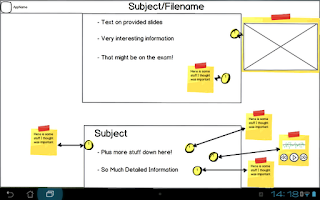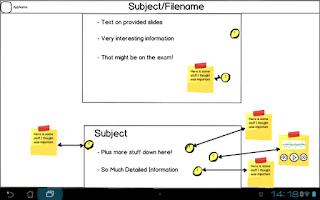Digger - By Ursula Vernon
Digger is a story about a wombat. Certainly not something I had expected when I grabbed the Hugo voter packet. It is a story about a stranger in a land that is stranger still. A land that seems to have a lot more magic and gods interfering than any sensible wombat should feel comfortable with.
This entry is the complete Digger story, which makes it extremely long, the PDF is 830 pages, it is split into volumes with each volume giving a brief summary of the story so far, and also containing extra backstory near the end.
The cast of characters is quite varied, but my favourites are probably Shadowchild and Ed. Shadowchild is a pure innocent and manages to ask some really interesting ethical quandaries, it listens earnestly and has no malice. This in some ways makes it even more dangerous as it follows advice more closely than it possibly should, and Digger is not always the best teacher, though she tries her best her advice, like most people teaching when they are inexperienced is incomplete in ways that she does not expect. I like Ed because he gives a lot of interesting backstory and completes some of the moral picture, despite the way Ed speaks, he seems to have thought a lot about how people should try to act.
It has a good mix of drama and humour. Sometimes in would be very cheesy dramatic scenes there is effectively some colour commentary from other characters there. Otherwise very serious characters are occasionally tripped up by events that Digger experienced. It was a fantastic story well told. It also can be read online here.
Schlock Mercenary Book 12: Force Multipliers - Written and drawn by Howard Taylor
I have been a Schlock Mercenary reader for years, I actually have all of the printed books and am currently up to date with it where I am not with most of the webcomics I read. It is a consistent and funny sci fi series where the author has clearly put a lot of thought into the setting. This particular run features only a rather small set of characters from the series and a location that constrains Sergeant Schlock from using his plasma cannon, a move he finds rather upsetting.It was an interesting story with various characters changing allegiance, strange deaths and antagonists that are both less and more sinister than they initially appeared. The first time I read this story I actually missed a late game reveal which reveals information about a character in Tagon's Toughs that has not yet paid off. I am going to have to keep a closer eye on that one.
It is the characters I like most about Schlock Mercenary, from the psychotic and cheerful Sergeant Schlock, the cheerful, dim and tough grunts like Shep and the hopeful and stable Dr Bunnigus. They all have something to offer and are a bit more multidimensional than those descriptors really indicate, I like they way they interact and also the way Schlock occasionally eats people and burns things down.
A quick note, if you do go to read Schlock Mercenary, the initial art is terrible, but it has improved much over the years. Also there is a lot of it, it has never missed a day (save for one instance of server troubles, and even there the strip was uploaded to an alternate site), and it has run for over 12 years now, Book 12 is somewhere around the 1 year mark in length.
Fables: Rose Red - written by Bill Willingham, various Artists.
I am not up to date with Fables, but it is a comic that I try to catch up on every year or so, grabbing the volumes if I see them in a store. I don't think I am too far behind, because in the Story So Far and Who's Who of Fabletown I don't really see anything new. As an aside, in the PDF provided for this, the text is a much higher resolution than the images, the speech bubbles must have been added digitally and it is initially surprisingly distracting, it probably isn't noticeable in the print version.
This volume is pretty cool, there is some further development of Mister Dark as the big nigh unstoppable villain, a lot more backstory for Rose Red and Snow White (and how Snow White appeared in the two seemingly contradictory fairy tales), and a really awesome fight. I also like the hints regarding the Mundy world, they really have not yet explained how the heck fairy tales come about, they are merely people in other worlds, but the series has always shown that the Mundy world is linked, stories that are popular here result in more powerful and resilient fables, even off world. Snow White and the Big Bad Wolf are both characters that can take a lot more punishment than other less popular fables.
I am pretty happy with the plot advancement, but like a lot of graphic novels, whilst progress is made, the stories are never quite self-contained, and not nearly as much is resolved as I would like. I guess it comes from their serial nature.
This comic does not give any useful information for newcomers to the series, so I am not sure who most of these characters are or their significance. It is pretty clear that Tom is the protagonist, but I have no idea why it is significant that Liz calls him Tom at one point. The copy in the Hugo voter packet does not even give me a blurb to work from. It just gives me quotes from a bunch of writers and magazines about how great the series is.
Whilst I still remain a bit confused at the relations between the characters, where these abilities come from and what they are trying to achieve, I did enjoy the romp through those famous tales and I also liked how the art style changed with stores. Both colour selection and artistic techniques change. I don't have enough knowledge to really describe them, but each story brings their own voice into the tale through the changed aesthetic.
The Unwritten Leviathan - By Mike Carey and Peter Gross
I have to admit I am a bit of a sucker for meta-stories. It is one of the reasons why I like Fables, The Unwritten has the same themes brought by a different mechanism. A large part of it takes place inside famous books and stories like Moby Dick and Sindbad the Sailor. It even features Baron von Münchhausen, one of my favourite characters purely because of a game I like based upon him.This comic does not give any useful information for newcomers to the series, so I am not sure who most of these characters are or their significance. It is pretty clear that Tom is the protagonist, but I have no idea why it is significant that Liz calls him Tom at one point. The copy in the Hugo voter packet does not even give me a blurb to work from. It just gives me quotes from a bunch of writers and magazines about how great the series is.
Whilst I still remain a bit confused at the relations between the characters, where these abilities come from and what they are trying to achieve, I did enjoy the romp through those famous tales and I also liked how the art style changed with stores. Both colour selection and artistic techniques change. I don't have enough knowledge to really describe them, but each story brings their own voice into the tale through the changed aesthetic.
Locke and Key Volume 4: Keys to the Kingdom - Written by Joe Hill, art by Gabriel Rodriguez
Unfortunately Locke and Key is a series that I do not follow, which means that I spent the first part of this book trying to work out who the various characters are and the basic concept. I really should have read the blurb (which is of course on the final page of the PDF).It was an interesting story, the core conceit is a series of magical keys and doors found within the Locke family home of Keyhouse. It follows a group of children that now that they have found out about these keys are in mortal danger. The book focuses on a hidden internal threat within the group, all of the keys being used seem to have been previously established, but the concepts are pretty cool, there is one that lets you literally play around with another's mind, one of the characters has removed her fear and her ability to cry, there are various others that let you travel, change into an animal, etc.
It is an interesting concept, maybe sometime I will try to find the earlier volumes so that I can get more of a feel for the continuity. Plot was advanced during the volume, but nothing was really concluded.






